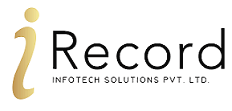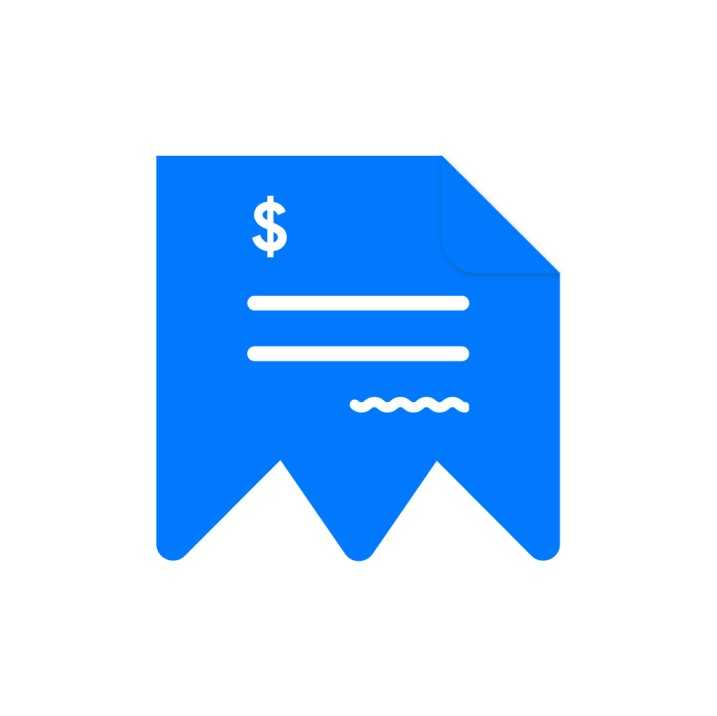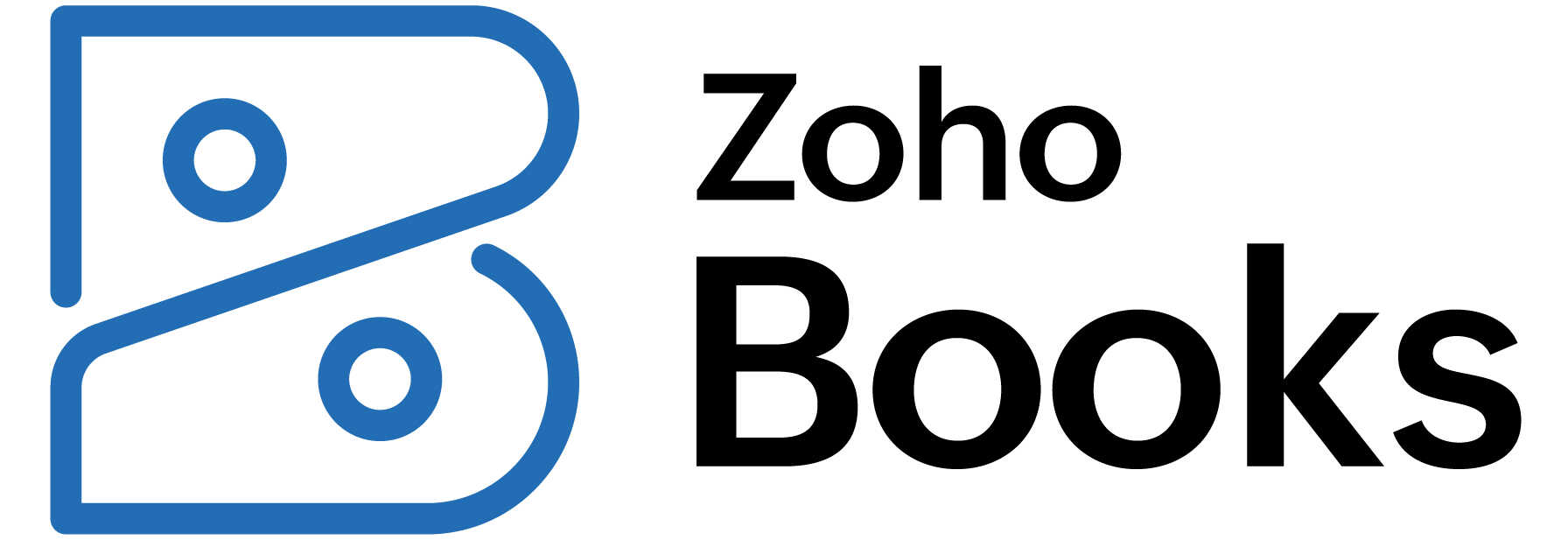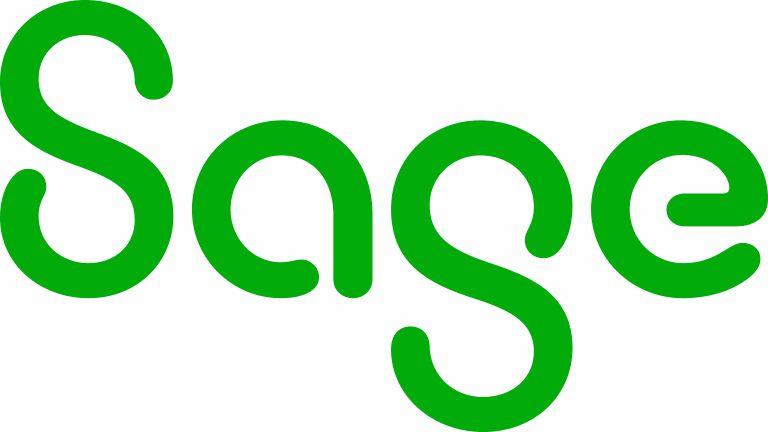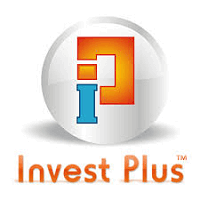Yes, most modern personal finance software is accessible across various devices and platforms. With the advent of cloud-based technology, several popular personal financial software tools now allow you to sync data and access your accounts from a computer, phone, or tablet. This enables for continuous access and updates, making it easy for consumers to manage their finances on the road. When selecting personal finance software, make sure to consider compatibility and syncing features.
List of 20 Best Personal Finance Software
iRecord Portfolio Management & Accounting is a asset management solution for investors, traders, corporates, CA & Family offices, and consultants. Our user-friendly software streamlines the management of diverse portfolio assets such as stocks, commo...Read More iRecord Portfolio Management & Accounting
Money Manager Ex is a budgeting program for individuals looking to efficiently manage their finances. With a user-friendly interface, this software allows you to easily track multiple accounts, transactions, and categories, while also offering featur...Read More Money Manager Ex
Personal Capital is a financial tool that provides real-time monitoring and evaluation of your investments. It efficiently identifies any hidden fees and offers customized advice for managing your portfolio. With a diverse range of investment options...Read More Personal Capital
JobBag solution for creative agencies. Our all-in-one business management software offers a wide range of powerful features such as job planning, project management, job costing, and financial management. This means you can streamline your operations...Read More JobBag
Moon Invoice is a invoicing and accounting software perfect for freelancers, small business owners, and entrepreneurs worldwide. Our user-friendly platform offers a free, web-based invoicing solution to simplify financial management. Leave behind the...Read More Moon Invoice
Acorns is an effective personal finance tool that helps you reach your financial goals by identifying profitable investment options. Our advanced 256-bit encryption ensures the safety of your transactions, giving you peace of mind. Say goodbye to ATM...Read More Acorns
Moneyspire is a financial management software designed to streamline your personal and professional finances. Easily track transactions, create personalized reports, and analyze market trends with this powerful tool. From budgeting to investment mana...Read More Moneyspire
TurboTax is a highly acclaimed tax software that is renowned for its user-friendly interface and efficiency. Its Free Edition enables you to prepare and file your taxes electronically with the IRS at no cost. TurboTax streamlines the process of filin...Read More TurboTax
AccountsIQ is a finance solution for your business. Say goodbye to complicated accounting and hello to streamlined processes with our advanced cloud-based technology. With multi-dimensional reporting, gain valuable insights and drive business growth...Read More AccountsIQ
Moneypex is a accounting software that simplifies bookkeeping and streamlines financial management for businesses. Designed for startups, contractors, and sole traders, this all-in-one solution centralizes your finances in one place, saving you time...Read More Moneypex
Saving Tool UK is acalculator designed to assist you in effectively budgeting and tracking your finances. With a few simple inputs of your income and expenses, you can receive a comprehensive breakdown of your tax responsibilities, retirement choices...Read More Saving Tool UK
Zoho Books solution for seamlessly managing your business accounts online. With a free 14-day trial, experience the ease of staying on top of your finances and cash flow. This powerful software streamlines accounting processes for small businesses, e...Read More Zoho Books
Sage Intacct is a financial management software aimed at small and mid-sized businesses. It is a cloud-based solution that efficiently streamlines crucial finance and accounting tasks while providing up-to-date financial information for confident dec...Read More Sage Intacct
HDPOS Smart Accounts and Billing is solution for all your financial needs. With a user-friendly interface and Windows compatibility, our software is perfect for managing finances, inventory, and billing on one computer or multiple terminals. Installa...Read More HDPOS Smart Accounts and Billing
Tax2win is the preferred platform in India for filing income tax returns quickly and smoothly. Our company is authorized by the IT Department to e-file income tax returns for individuals. Experience a hassle-free and efficient tax return filing proce...Read More Tax2win
Invest Plus is a finance management software designed to streamline your financial tasks, investment portfolio, and income tax preparations. With specialized modules including Personal Accounting, Assets Management, Loan Management, and Personal Orga...Read More Invest Plus
Experience effortless budgeting with Metalogic Finance Explorer. Its user-friendly interface and advanced features make budgeting a breeze. Automate the import of financial data from your bank and easily organize data from any source or format using...Read More Metalogic
HomeBank is a personal finance software that streamlines your accounting tasks. With its user-friendly interface, you can effortlessly track expenses, income, assets, and budget. Generate detailed reports and easily import Amiga-related data. Taking...Read More HomeBank
GnuCash streamlines the idea of Assets = Liabilities + Equity and empowers you to monitor your budget without relying on traditional categories found in mainstream personal finance software. By using GnuCash, you can easily handle your finances and g...Read More GnuCash
Wave Personal solution for managing your personal finances. This free software empowers you to effortlessly track your income, expenses, and investments, all in one convenient place. With our secure cloud-based platform, you can easily stay on top of...Read More Wave Personal
Learn More About Personal Finance Software
- What Is Personal Finance Software?
- What Are The Recent Trends In Personal Finance Software?
- Benefits Of Using Personal Finance Software
- Important Factors To Consider While Purchasing Personal Finance Software?
- What Are The Key Features To Look For In Personal Finance Software?
- Why Do Businesses Need Personal Finance Software?
- How Much Time Is Required To Implement Personal Finance Software?
- What Is The Level Of Customization Available In Personal Finance Software?
- Which Industries Can Benefit the Most from Personal Finance Software?
- Conclusion
What Is Personal Finance Software?
Personal finance software is a digital tool that helps people manage their finances in a more easy and orderly manner. It includes functions such as cost tracking, budgeting, and investment monitoring. This software has grown in popularity among customers due to its capacity to simplify and streamline the arduous chore of personal financial management.
Personal finance software, at its foundation, enables people to take more control over their money by offering a full picture of their financial situation. By connecting to bank accounts and credit cards, these apps may automatically categorize and track expenses, providing users with real-time insight into their spending habits. This tool can also assist consumers identify places where they can reduce unneeded spending and save money.
Furthermore, personal finance software includes budgeting features that enable users to define financial objectives and devise strategies to attain them. Users may control their spending and work toward long-term financial goals, such as saving for retirement or paying off debt, by creating budgets for different categories. In addition to these key capabilities, personal finance software provides a number of advanced options for managing investments and taxes.
These programs can help with portfolio tracking, tax preparation, and even offer recommendations for future investment options. Most personal finance software is designed to be user-friendly, with simple interfaces and tutorials to help even the most unskilled users. It is available in a variety of formats, including desktop, web-based, and mobile applications, making it easy and convenient for customers to manage their accounts on the go.
What Are The Recent Trends In Personal Finance Software?
Personal financial software has grown in popularity in recent years as consumers see the value of successfully managing their finances. This has resulted in various trends in the development and use of personal finance software, with the goal of making it easier for people and families to manage their finances.
Buyers of personal finance software should be aware of the following major trends:
1. Integration With Many Devices: With the proliferation of smartphones and other mobile devices, personal finance software now provides seamless integration with a variety of devices. This allows consumers to view their financial information at any time and from any location, making it easier to track spending and stay within budget.
2. Cloud-Based Storage: Previously, personal finance software needed users to keep their information locally on a computer. With the growing use of cloud technology, many personal finance apps now have the ability to save financial data in the cloud. This not only provides convenient access from any device, but also assures that the data is secure and backed up.
3. AI And Automation: Another noticeable trend in personal financial software is the use of artificial intelligence (AI) technology and automation. This enables users to automate repetitive processes like bill payments, spending classification, and savings planning. AI systems can also evaluate spending trends and offer customers individualized financial advise.
4. Goal-Setting And Tracking: The latest personal finance software focuses on assisting users in defining and achieving financial objectives. These objectives could include saving for a down payment on a home, paying off debt, or establishing an emergency fund. The software monitors progress and offers insights to help users stay on target.
5. Integration With Other Financial Tools: Personal finance software may now be integrated with other financial tools and services, including investing platforms and tax software. This not only gives a comprehensive snapshot of an individual's financial situation, but it also simplifies the process of maintaining several bank accounts.
Benefits Of Using Personal Finance Software
Personal finance software is an invaluable resource for everyone who wants to enhance their financial management. This software has a number of features and benefits that can help people track their costs, develop budgets, and reach their financial goals.
Let's explore, we'll go over the several advantages of utilizing personal finance software, so you can make an informed decision on which software to purchase.
1. Organized Financial Management: One of the key advantages of adopting personal finance software is that it gives a single platform for organizing all of your financial data. You may connect your bank, credit card, and investment accounts to the software, allowing you to see all of your financial transactions in one spot. This removes the need for human spending tracking and eliminates the possibility of missing critical financial information.
2. Budget Creation And Tracking: Creating a budget is critical for financial security, and personal finance software makes it simpler than ever. Budgeting tools allow you to set spending restrictions, manage your spending habits, and see where your money is going. This can help you detect unneeded costs and make changes to better your financial situation.
3. Expense Tracking And Categorization: Personal financial software also helps you track and categorize your costs. This feature allows you to better understand your spending habits and discover areas where you may cut back. You can also set up notifications to warn you when you reach your spending limitations in a certain category.
4. Investment Management: Some personal finance software also includes investment management capabilities, which enable you to track and analyze your investments' performance. You can select financial goals and receive individualized suggestions for investments that match with those goals. This allows you to make more educated investing decisions and earn higher profits.
5. Bill Pay Reminders: Late payments might result in high costs and a lower credit score. Personal finance software might help you avoid this by reminding you about upcoming bill payments. Some software even allows you to set automatic payments, so you never miss a payment.
6. Tax Preparation: Many personal finance software applications include tax preparation tools, which make tax season less stressful. You may integrate all of your financial information into the software and generate reports to assist you submit your taxes correctly. This saves you time and lowers the likelihood of errors in your tax returns.
7. Security: Personal finance software often employs advanced security methods to safeguard your financial information. This includes data encryption, multi-factor authentication, and frequent software updates. With personal finance software, you can have peace of mind knowing that your financial data is safe.
Important Factors To Consider While Purchasing Personal Finance Software?
When it comes to handling your finances, having dependable and effective software can make a big difference. With so many options on the market, it might be difficult to find the best personal finance software.
To help you make an informed decision, here are some key elements to consider when selecting personal finance software.
1. Budget: The first step in purchasing personal financial software is to establish a budget. Consider how much you're willing to pay on the product, taking into account any additional fees or subscription rates. This will help you reduce your alternatives and avoid overspending.
2. Functions: Because different personal finance software provides different functions, it's critical to identify which ones are necessary for your money management requirements. Some popular features to check for include budgeting, bill payment tracking, investment management, and reports. Create a list of the characteristics you require and use it to compare other software solutions.
3. Compatibility: Make sure that the personal financial software you choose is compatible with your devices and operating system. Check the software parameters to ensure it works with your computer, tablet, or smartphone. This ensures that you can easily access and use the software.
4. Usability: Good personal finance software should be easy to use and navigate. Look for a demo version or a free trial to evaluate the software's interface and functionality before purchasing it. Consider whether the layout is intuitive and whether the software includes clear instructions for use.
5. Security: Given that the software stores sensitive financial information, security should be a high priority. To safeguard your data from cyber attacks, make sure the software includes security features like password protection and encryption.
6. Customer Help: It is critical to select personal financial software that provides dependable customer help in the event that you face any technical difficulties or have queries about how to use the software. Consider choices that offer numerous lines of help, such as phone, email, and live chat.
7. Reviews And Ratings: Before purchasing any personal finance software, it is recommended that you study reviews and ratings from other customers. This will give you a sense of their experiences and allow you to make an informed decision.
What Are The Key Features To Look For In Personal Finance Software?
Personal finance software, often known as money management software, is a useful tool for individuals who want to track and manage their finances. With so many options available on the market, it might be difficult to select the appropriate one.
To make an informed decision, you must first understand what vital features to seek for in personal financial software. Here are the key features to consider:
1. Budget and Expense Tracking: A decent personal financial program should have budgeting and expense tracking features. This tool enables users to create a budget, track their spending, and receive warnings when they exceed a predetermined limit. It provides a detailed perspective of where your money is going, allowing you to make more informed financial decisions.
2. Account Management: Another important element to look for is account management. The software should be able to link and synchronize with your bank, credit card, and investment accounts. This allows for seamless adjustments to transactions, balances, and investment performance, freeing you from the burden of manually entering data.
3. Goal-setting And Planning: Personal finance software can also assist users define and achieve financial objectives. It should provide goal-setting tools such as savings targets, debt repayment, and retirement planning. These features give a clear roadmap and encourage customers to stay on track with their financial goals.
4. Bill Reminder and Payment Management: Keeping up with bill payments can be difficult, especially if you have several accounts. The program should include a bill reminder and payment management tool that will alert you to approaching due dates and assist you in managing your payments. Some software even includes automatic payment choices, making the procedure easier.
5. Tax Management: Individuals who file their taxes should have tax management skills in their personal finance software. This feature allows customers to keep track of their tax-deductible expenses and streamlines tax filing. It can also provide tax forecasts, allowing users to plan for possible tax liabilities.
6. Security And Data: Encryption Security is essential since the program will be used to store sensitive financial information. Look for software that uses strong encryption to protect your data and provides secure login alternatives. It is also critical to routinely update your software to ensure that you have the most recent security updates.
7. Compatibility And Accessibility: Before purchasing, consider the software's compatibility and accessibility options. If you like to access your accounts from multiple devices, be sure the program is suitable and has a mobile app.
Why Do Businesses Need Personal Finance Software?
Personal finance software is a vital tool for organizations that want to successfully manage their finances and make sound financial decisions. This robust software package has a variety of tools that enable organizations to analyze income and expenses, develop budgets, and monitor investments from a single spot. One of the most important reasons organizations need personal finance software is to keep their finances organized and conveniently accessible.
Businesses that can import bank and credit card transactions can save time on manual data entry and have a real-time snapshot of their financial situation. This tool also helps to avoid errors that are common with manual entry. In addition to organizing, personal financial software can aid with cash flow management.
Businesses that understand cash inflow and outflow can identify and address possible cash flow difficulties before they become serious problems. This is especially crucial for small firms, since cash flow can determine the company's success or failure. Furthermore, personal finance software enables firms to develop accurate budgets and track expenses.
Businesses may stay on top of their expenses and uncover areas for cost savings by using customisable budget categories and overspending notifications. This function is very useful when developing a financial roadmap for the firm and defining attainable financial goals. Furthermore, personal finance software enables organizations to track investments and analyze their success. Businesses that use precise investment trackers and reports can make more educated investment decisions and maximize their profits.
How Much Time Is Required To Implement Personal Finance Software?
The time required to deploy personal financial software is determined by a variety of factors, including the software's complexity, the user's expertise with the technology, and the amount of data that must be entered. On average, it can take a few hours to a few days to fully configure and personalize the software to meet your financial requirements. If you are new to utilizing personal financial software, you may need some time to learn about its features and settings.
Most software products include tutorials and user guides to help you get started. It is recommended that you spend some time reviewing these materials to properly understand how the software works. Another aspect that can influence implementation time is the amount of data that needs to be entered into the software. If you have a large number of financial transactions and accounts to enter, it may take longer to set up the software.
However, some systems allow you to import data from your bank or credit card accounts, saving you time and effort. It is vital to remember that the time spent implementing personal financial software is a one-time investment. Once the initial setup is complete, the software can help you streamline your financial management process, saving you time and money in the long term.
To guarantee a seamless implementation process, have all of the relevant financial information and paperwork ready before beginning. This contains bank and credit card statements, as well as budget planning.
What Is The Level Of Customization Available In Personal Finance Software?
When it comes to managing your own accounts, personal finance software can be an invaluable resource. It not only helps you track your expenses and income, but it can also provide you with helpful budgeting and saving tips. The level of customisation provided is an important factor to consider when choosing personal finance software. Customization in personal finance software refers to the ability to modify the software to your own requirements and financial objectives.
This might include simple changes like adding your own spending categories, as well as more complicated capabilities like creating custom reports and defining financial objectives. Rather than relying on generic templates, customizable budgeting tools allow you to construct a budget that represents your specific income and expenses. This enables you to track your spending in a way that is important to you and helps you make better financial decisions.
Additionally, personalization might include the visual layout and organizing of your financial data. Some personal financial software allows you to personalize the dashboard and reports to display only the information that is most relevant to you. This allows you to focus on the data that is most important for financial management. For those who prefer a more hands-on approach, some personal financial software allows you to manually track transactions.
This enables you to add and categorize each spending and income, providing a more accurate and personalized picture of your finances. Finally, customisation can include the option to sync your financial accounts and data with the software. This enables real-time changes while eliminating the need for manual entry, saving you time and effort.
Which Industries Can Benefit the Most from Personal Finance Software?
Personal finance software is an invaluable resource for anyone trying to gain control of their finances. However, it may also be extremely advantageous to other businesses, assisting them in streamlining their financial operations, improving decision-making, and, ultimately, driving profitability.
Let's look at which industries can profit the most from personal financial software.
1. Freelancers And Self-Employed Persons: With different revenue streams, fluctuating expenses, and unpredictable cash flow, freelancers and self-employed persons sometimes struggle to manage their money. Personal finance software allows customers to track their income, expenses, and bills in one place, develop budgets, and assess their overall financial health. Furthermore, many personal finance tools provide tax tracking and reporting functions, making it easier for freelancers to keep track of their taxes.
2. Small firms: Small firms frequently have limited resources and must make every penny count. Personal finance software can help users gain real-time financial insights, automate invoicing, manage costs, and track cash flow. It can also provide reports and forecasts, allowing small firms to make better financial decisions and plan for the future.
3. Non-Profit Organizations: Non-profit organizations have particular financial requirements, including stringent budget constraints and donor contributions to manage. Personal financial software can help them manage donations, grants, and expenses, set budgets, and generate reports that show donors how their money is being spent. It can also help manage payroll and employee spending for non-profit employees.
4. Real Estate And Property Management: Real estate agents and property managers must handle several properties, tenants, and upkeep expenditures. Personal finance software can help them keep track of rental income, expenses, and maintenance costs for each property separately. It may also generate financial statistics for each property, allowing real estate professionals to track profitability and make informed decisions.
5. Healthcare Facilities: Hospitals and clinics have complex financial operations that necessitate precise tracking and reporting. Personal finance software can assist these facilities accurately manage patient invoicing, insurance claims, and medical expenses. It can also generate thorough financial reports to keep the administration updated on the facility's financial performance.
Conclusion
To summarize, personal finance software can be a significant asset for people trying to gain control of their finances and achieve their financial objectives. Buyers may select the best software for their demands and budget by taking into account features such as budgeting tools, tracking capabilities, and security measures. It is critical to thoroughly investigate and analyze several possibilities, taking note of crucial features and customer feedback.
Additionally, looking for free trials or demos can provide hands-on experience and help you make an informed selection. While there are numerous software solutions available, it is critical for customers to evaluate their individual financial goals and select a program that meets those demands. Whether it is budgeting, investing, or debt management, there is a solution for everyone.
Investing in personal finance software can help you save time, decrease stress, and improve your overall financial health. Individuals can use the tools and features provided to manage their spending, set and achieve financial goals, and make sound financial decisions.
Personal Finance Software FAQ's
Can Personal Finance Software Be Accessed Across Multiple Devices And Platforms?
Is Personal Finance Software Future-Proof And Adaptable To Emerging Technologies Like AI, Blockchain Or IoT?
Personal finance software is constantly evolving to keep up with emerging technologies such as artificial intelligence (AI), blockchain, and IoT. Developers are continually implementing these developments into their software, making it future-proof and adaptive. Personal finance software can employ artificial intelligence to deliver tailored budgeting and investing advice by connecting to bank accounts and analyzing spending trends.
Furthermore, numerous platforms are investigating the usage of blockchain for safe transactions and interfacing with IoT devices to enable real-time financial tracking. The combination of these technologies transforms personal finance software into an effective tool for managing and planning your finances.
Is There A Free Trial Offered To Assess Personal Finance Software Before Committing?
Yes, many personal finance software businesses offer limited-time free trials. This allows consumers to evaluate the software's features and functionality prior to making a commitment. It is critical to take advantage of this trial period to thoroughly investigate the product and assess whether it satisfies your requirements. Before joining up for a free trial, read the terms and conditions carefully.
Does Personal Finance Software Offer Data Security Features And Meet Regulatory Compliance Standards?
"Yes, most personal finance software includes data security features like encryption and password protection to safeguard your financial information. They also meet regulatory requirements such as the General Data Protection Regulation (GDPR) and the Payment Card Industry Data Security Standard (PCI DSS). Some software even includes additional features like two-factor authentication and data backup, giving consumers piece of mind about the security of their financial information."
Can Personal Finance Software Integrate Seamlessly With Existing Tools And Platforms?
Yes, most personal finance software nowadays can smoothly interact with existing tools and platforms. This means you can quickly integrate your financial information with other programs like bank accounts, credit cards, investment portfolios, and budgeting tools. This integration enables data synchronization and provides a comprehensive and accurate view of your money in one place. This tool allows you to make smarter financial decisions and manage your money more easily.

